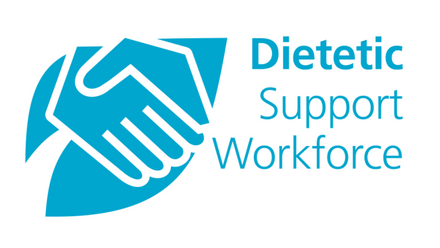The dietetic support workforce is a crucial part of the dietetic workforce, working across the UK in a variety of settings including hospitals, clinics, community settings, people’s homes, schools and public health to provide essential service user care. They play a vital role in helping patients and clients and assisting with the delivery of essential nutrition and dietetic services. Supportive and assistive roles are flexible, adaptable and can be used in many ways to deliver excellent care.
At the BDA, we are committed to recognising, strengthening and empowering our support workforce. That’s why, over recent years, the BDA have been working hard to identify and address the issues that this area of our workforce encounter.
Between 2022 and 2023, a scoping exercise found inconsistencies in the roles and responsibilities being undertaken by the dietetic support workforce, across different levels of practice and across the four nations. A degree of uncertainty and a lack of clarity over the roles they could take on in practice were reported from both members of the support workforce and their colleagues. This means that our support staff are not always able to maximize their contribution to care or have clear guidance on how they might progress in their careers.
To address the findings of this scoping exercise, we’ve developed the BDA roles and responsibilities guidance - a practical new resource designed to help and support:
- safe and consistent deployment of roles and responsibilities
- identification of activities and tasks that could be taken on with appropriate training
- working to the full scope of their role and practice
- delivery of safe and effective care
- development of job descriptions
- workforce planning
- development of skills and career progression
- a rewarding and fulfilling career within the dietetic workforce
Building on the professional practice pillar within the BDA Dietetic Career Framework, the guidance is aimed at members in supportive or assistive roles, who provide direct service user care, and registered healthcare professionals, who manage, supervise or work alongside them.
This new guidance outlines the scope and contribution of the dietetic support workforce roles within the profession, mapping typical roles and responsibilities at each level of practice. Key areas of consideration to ensure safe and effective practice are also highlighted, including;
- delegation of responsibilities
- determining service user complexity
- supervision
- scope of practice
- preceptorship
- education and training
With the responsibilities clearly linked to the steps of the BDA model and process for nutrition and dietetic care, it is easy to follow and implement consistently across different settings.
Liz Stockley, Chief Executive Officer of the BDA, commented “It’s important that the whole dietetic workforce is supported, no matter what stage of career people are in. By removing some ambiguity and identifying the responsibilities of typical supportive and assistive roles, we hope that it will become easier for individuals to identify opportunities for professional development, perform at the top of their level of practice and progress in the profession.”
Discover how the new BDA roles and responsibilities guidance can benefit you and your team by accessing the full guidance document here. You can also check out our other dedicated resources for the support workforce, including the new accountability and delegation guidance, by visiting the BDA support workforce hub.





